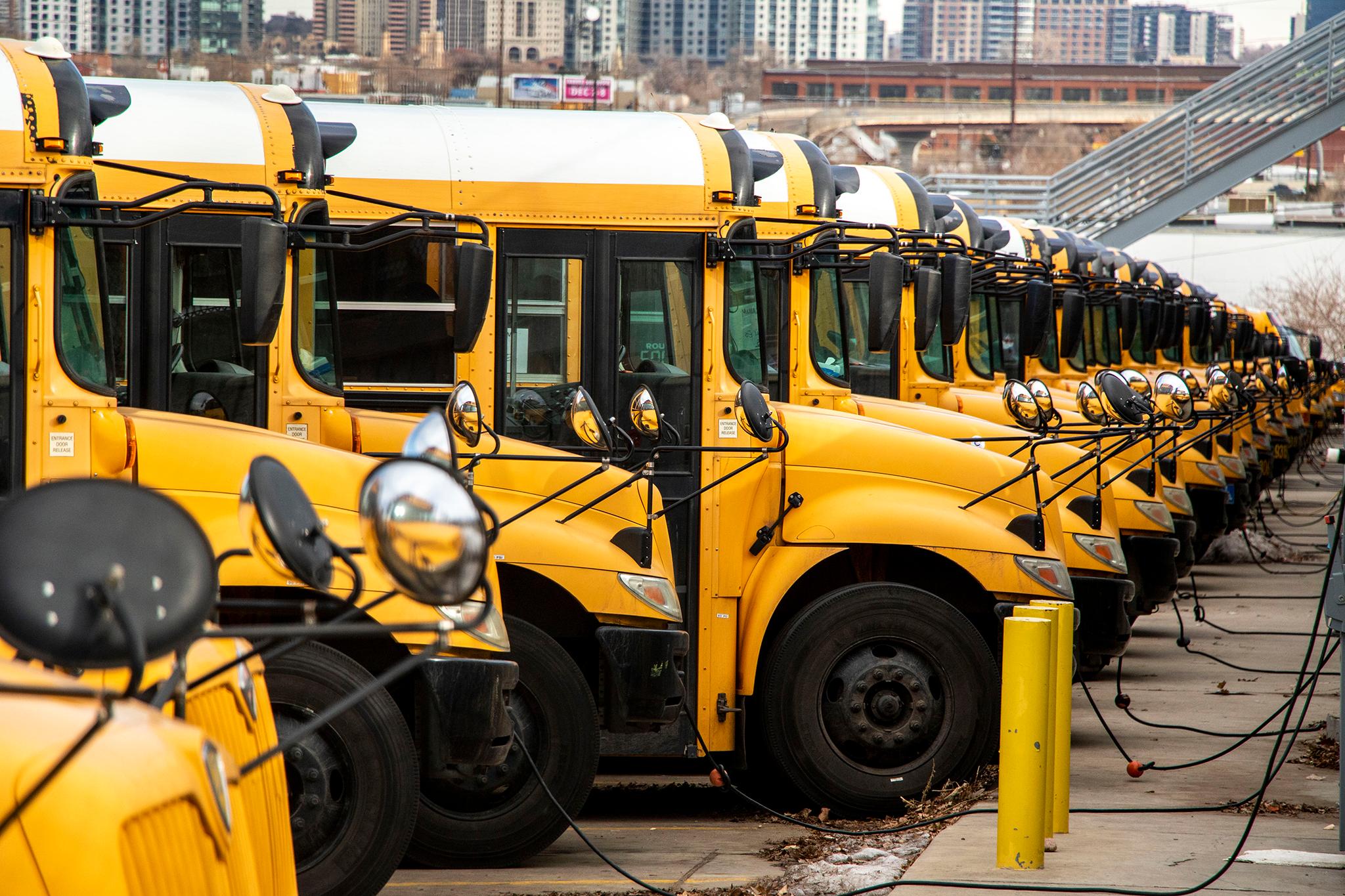School employees, union leaders and community members are asking Denver Public Schools for a living wage for school employees who earn minimum wage. They say such workers can no longer afford to live in a city where the median house cost is $600,000 and inflation keeps prices rising.
"I have been working with students in the classroom for over a decade," said Carolina Galvan, a bilingual paraprofessional at Valdez Elementary, where a Monday evening rally took place. "I help nurture learning, love and language, but nothing about DPS's pay scale reflects the importance of what I bring to these kids every day."
She said the rally, which drew almost 300 workers, was a start of a campaign to raise the pay for the district's 1,185 minimum wage workers. They represent about 10 percent of Denver Public School employees. District superintendent Alex Marerro had planned to join the rally but let organizers know before the event he couldn't make it due to COVID-19 protocols.
Boosting minimum wage workers' earnings is one of the priorities Marrero laid out for the school board earlier this month. The district is cutting about 75 central office employee jobs permanently to save $9 million dollars. Some of that money is being repurposed for the wage increase, but the district didn't say how much it would cost or what a living-wage target would be.
Currently, critical classroom aides known as paraprofessionals earn the city's minimum wage of $15.87 an hour as do groundskeepers, food service workers, custodians, bus drivers and health technicians who work with nurses.
Galvan said all paras at her school earn minimum wage, regardless of how many years they have been working there.
"$15.87 is not only a minimum wage, it's a poverty wage," she said. She said many paras have multiple jobs, have no health care and rely on public assistance to meet basic needs. "We deserve better," she said. "Our families deserve better."
A paraprofessional, making minimum wage in Denver, with a family of three ends up earning below the federal poverty line because the city is one of the most expensive places to live in the country. The cost of living for a Denver family of three or four with one or two working adults is between $85,000 and $100,000 a year, according to the MIT Cost of Living Wage Calculator. Currently at minimum wage, paras are making below $25,000 a year.
"Denver is a thriving city and it is unfair and unjust to allow our city's success to only benefit some of its people," said Kevin Holwerda Hommes, a parent at Valdez Elementary School, who said he was shocked to learn the pay paras receive. "This must stop. We have to stop paying a poverty wage to DPS employees."
"Every single one of these groups helps to mold our children, the community's children, our future leaders," added parent Brandy Stubbs. Valdez paraprofessionals approached the school's culture and equity committee asking for support on the wage issue.
Fedrick Ingram, secretary general of the American Federation of Teachers, addressed the service workers, leading them in a cheer, "When we fight, we win!"
He described putting his daughter on a school bus at 5. that morning.
"The most important person in America is that school bus driver because it has my precious cargo, it has my kid on that bus," he said. "I want that bus driver to not only make a living wage ... but that bus driver has gotten up at 3:00 a.m., kicked the tires, pulled the seat belts, hit every single red light and got my daughter to school.
The issue is a critical one as Denver employee surveys show school worker satisfaction -- including teachers -- is low. School district financial challenges have been made worse by the fact that the state does not fully fund schools. Each year the state withholds millions of dollars from school budgets in order to balance the overall state budget. Until this legislative session when state lawmakers were able to send more money to schools, about $52 million a year was being withheld from DPS.
Organizers want DPS to examine other sources of money to pay minimum wage workers more such as its reserve, which sits at 11 percent of the $1.2 billion budget, special project funds, and federal funds.














